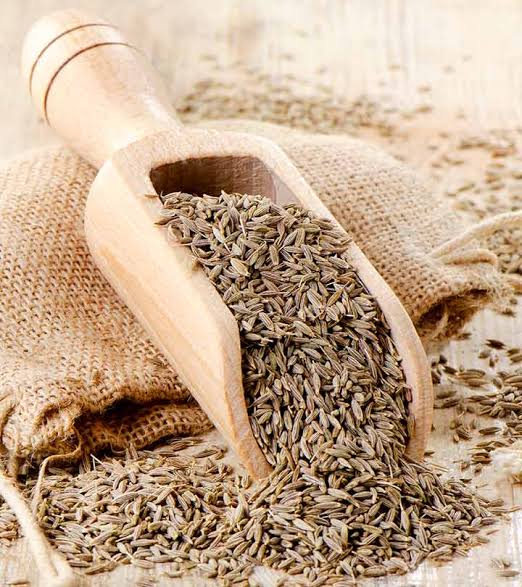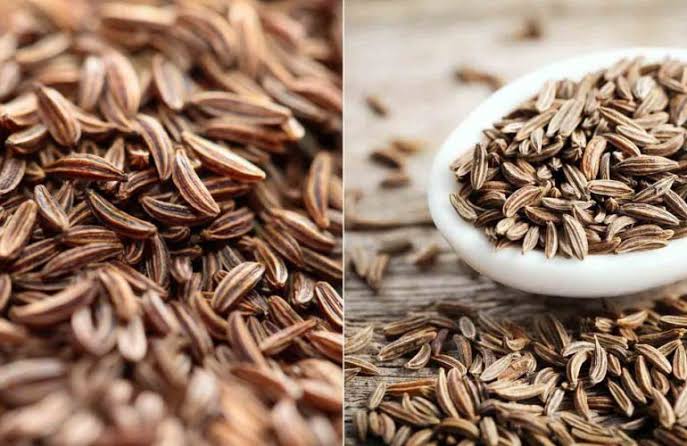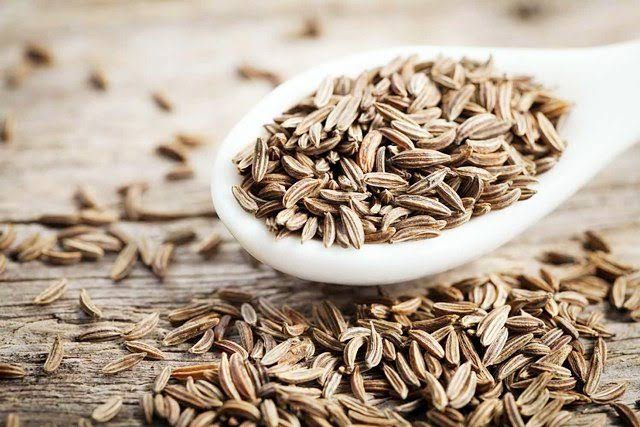Jeera, also known as cumin, is a delightful spice that adds flavor and aroma to countless dishes around the world. It’s a small, elongated seed that packs a powerful punch when it comes to taste. Jeera is widely used in cooking and has a rich history dating back thousands of years.
Jeera is a staple in Indian cuisine, where it is often toasted to release its earthy and nutty flavors. Its warm and slightly citrusy taste makes it an essential ingredient in curries, rice dishes, and spice blends like garam masala. But its popularity extends far beyond India’s borders; it’s an integral part of Middle Eastern, Mexican, and North African cooking too.
This humble spice doesn’t just elevate the taste of food; it also offers numerous health benefits. Jeera is rich in antioxidants and can aid in digestion. It’s a common home remedy for indigestion and bloating, often consumed as a simple jeera water infusion.
Jeera is not only used in savory dishes but also in sweets and beverages. In some parts of the world, it’s used to flavor teas and alcoholic beverages, adding a unique twist to familiar drinks.
The versatility of jeera extends to its use in pickles and chutneys, where it imparts a tangy and spicy flavor that can awaken your taste buds. Its presence in bread and pastries adds an unexpected depth of flavor that keeps you coming back for more.
Jeera’s importance goes beyond culinary uses. In traditional medicine systems like Ayurveda, jeera is considered a potent remedy for various ailments. It is believed to have anti-inflammatory properties and is used to treat respiratory conditions, among other things.
What’s truly fascinating about jeera is its journey through history. It has been a prized spice for centuries, traded along the ancient spice routes that connected the East to the West. Its influence on global cuisines is a testament to its enduring appeal.
However, jeera or cumin, is more than just a spice; it’s a culinary treasure with a rich history and a world of flavors and health benefits. So the next time you savor a dish with that unmistakable jeera aroma, take a moment to appreciate the depth and diversity this humble seed brings to the world of food.
Read Also: How Much Milk You Can Get From A Goat
13 Health Benefits of Jeera Spices

Jeera or cumin, is not just a spice that enhances the flavor of your dishes; it also offers a wide range of health benefits. Here are 13 health benefits of jeera spices:
1. Digestive Aid: Jeera contains compounds that stimulate digestive enzymes, promoting better digestion and reducing indigestion and bloating.
2. Rich in Iron: It is a good source of iron, which helps prevent anemia by aiding in the production of red blood cells.
3. Antioxidant Properties: Jeera is loaded with antioxidants that combat free radicals and help protect cells from damage.
4. Anti-Inflammatory: Its anti-inflammatory properties can help alleviate symptoms of arthritis and other inflammatory conditions.
5. Weight Management: Jeera can boost metabolism, aiding in weight loss when combined with a balanced diet and exercise.
6. Lowers Cholesterol: Regular consumption may help reduce LDL (bad) cholesterol levels, promoting heart health.
7. Blood Sugar Control: Some studies suggest that jeera may help regulate blood sugar levels, which can be beneficial for individuals with diabetes.
8. Respiratory Health: Jeera is used in traditional medicine to alleviate symptoms of respiratory disorders like asthma and bronchitis.
9. Antibacterial: It possesses antibacterial properties that may help fight against infections.
10. Improves Immunity: The vitamins and minerals in jeera, such as vitamin C and iron, can boost the immune system.
11. Aids in Insomnia: Drinking jeera tea before bedtime may help improve sleep quality and treat insomnia.
12. Skin Health: Applying a paste of jeera can help soothe skin irritations and promote a healthy complexion.
13. Anti-Aging: Its antioxidant properties can slow down the aging process by reducing the effects of oxidative stress on the skin.
Remember that while jeera can provide these health benefits, it should be consumed in moderation as part of a balanced diet. Always consult with a healthcare professional for personalized advice, especially if you have specific health concerns.
Read Also: How to Hand-milk a Goat, Follow These Steps
Uses of Jeera Spices

Jeera spices, also known as cumin, are incredibly versatile and widely used in various culinary traditions around the world. Here are some common uses of jeera spices in cooking:
1. Curries: Jeera is a fundamental spice in many curry recipes, adding depth and flavor to dishes like chicken curry, vegetable curry, and dal (lentil curry).
2. Rice Dishes: It’s a key ingredient in pilaf and biryani preparations, infusing the rice with its distinct aroma and taste.
3. Spice Blends: Jeera is a crucial component in spice blends like garam masala, curry powder, and taco seasoning, enhancing their overall flavor profiles.
4. Tempering: In Indian cuisine, jeera is often used in the tempering process, where it’s briefly roasted in hot oil or ghee to release its flavors before being added to dishes.
5. Soups and Stews: It can be added to soups, stews, and chili to give them a warm and earthy flavor.
6. Pickles: Jeera seeds are used in pickling, imparting a tangy and spicy taste to preserved vegetables.
7. Breads: In some cuisines, like Indian and Middle Eastern, jeera is added to bread, giving it a distinctive flavor. For instance, naan and pita bread often contain jeera.
8. Snacks: Jeera seeds are used to season snacks like roasted nuts and popcorn, offering a savory and spicy kick.
9. Beverages: Jeera water is a popular digestive drink made by soaking jeera seeds in water. It’s believed to aid digestion and reduce bloating.
10. Sauces and Marinades: Ground jeera can be included in sauces and marinades for meats and vegetables to enhance their taste.
11. Teas: Jeera tea is enjoyed in some cultures as a soothing and flavorful beverage with potential health benefits.
12. Cheeses and Sauces: In Mexican cuisine, ground cumin is used in dishes like chili con carne and in cheese sauces for nachos.
13. Vegetables: Roasted or sautéed jeera can be sprinkled over steamed or grilled vegetables to add a zesty flavor.
14. Meat Rubs: Jeera is often part of spice rubs for meats, such as jeera chicken or lamb.
15. Dips and Dressings: It can be included in dips like hummus or used in salad dressings to add a unique taste.
The versatility of jeera spices makes them a staple in many kitchens, enhancing the flavor of a wide range of dishes. Its warm, earthy, and slightly citrusy notes make it an indispensable ingredient in global cuisine.
Read Also: How to Make Money from Wastes

